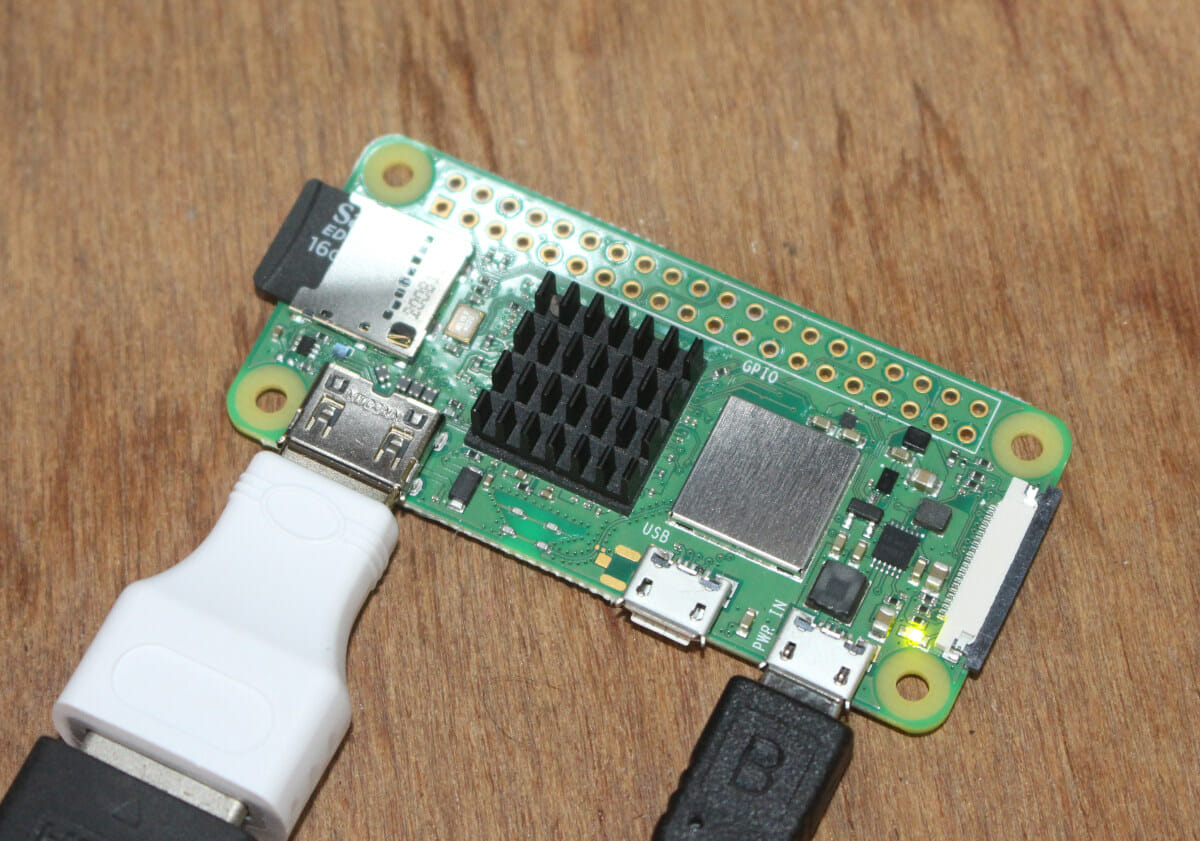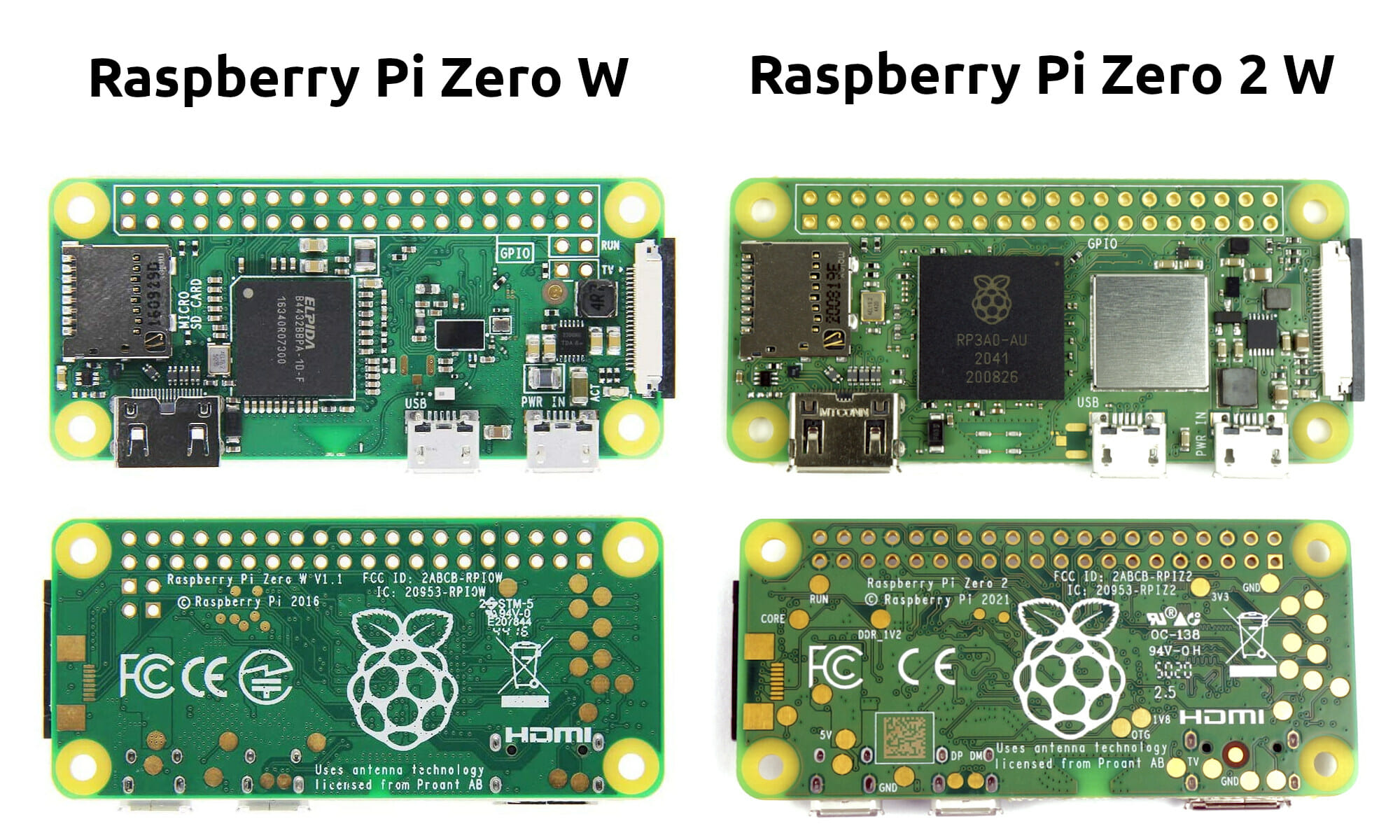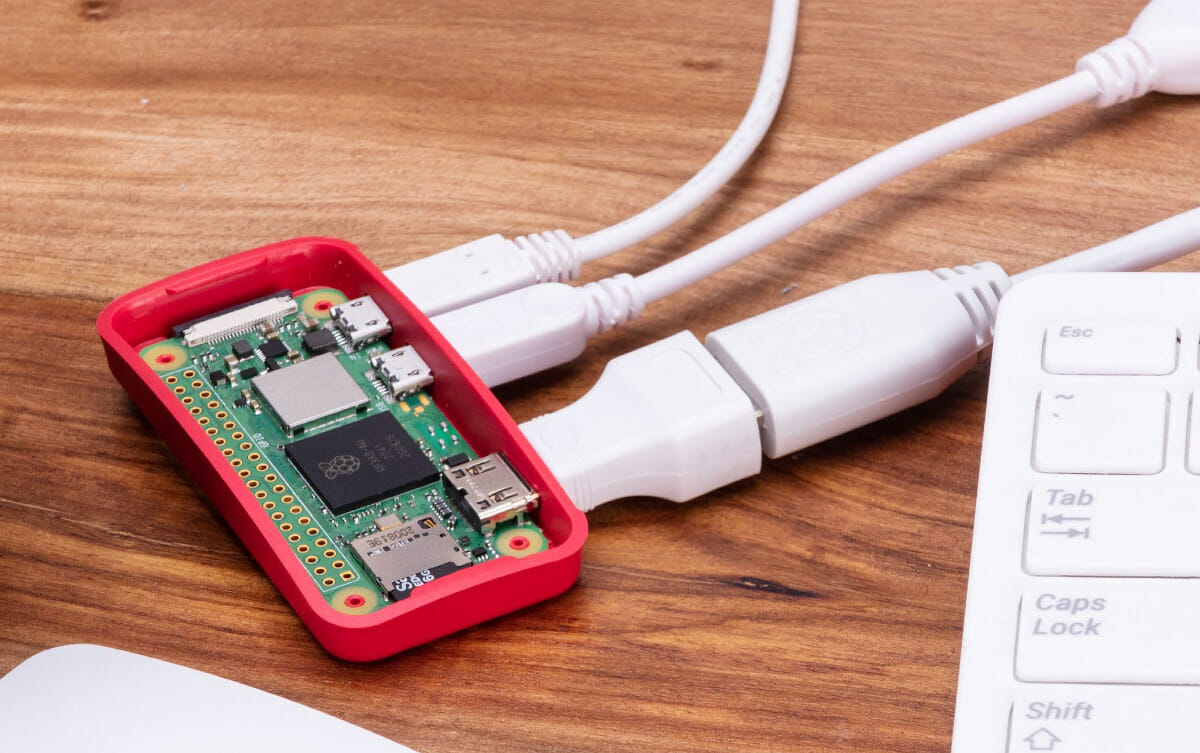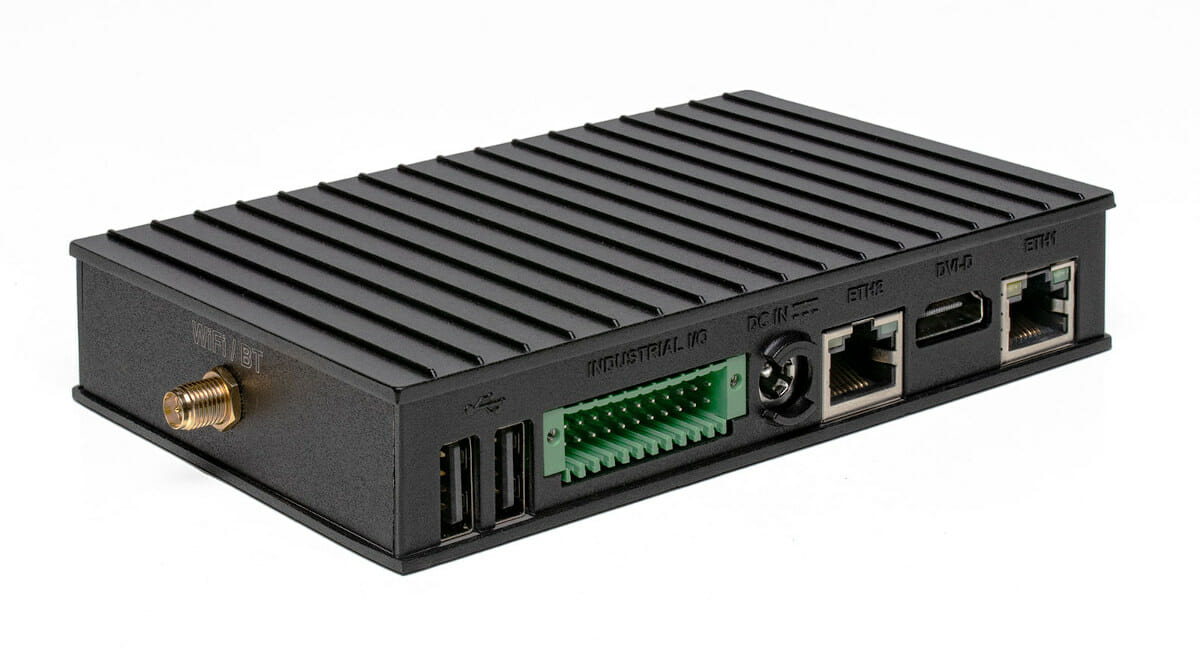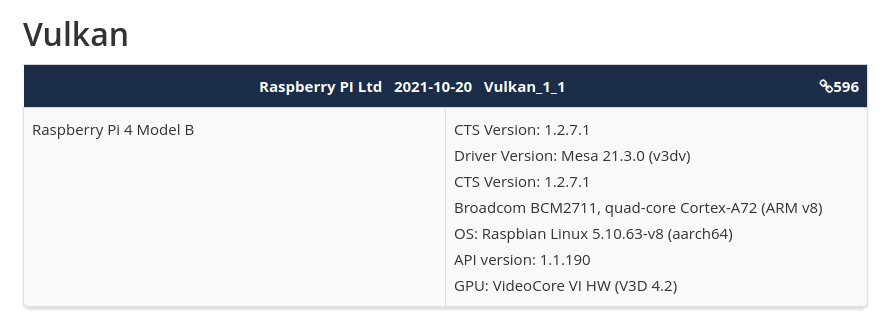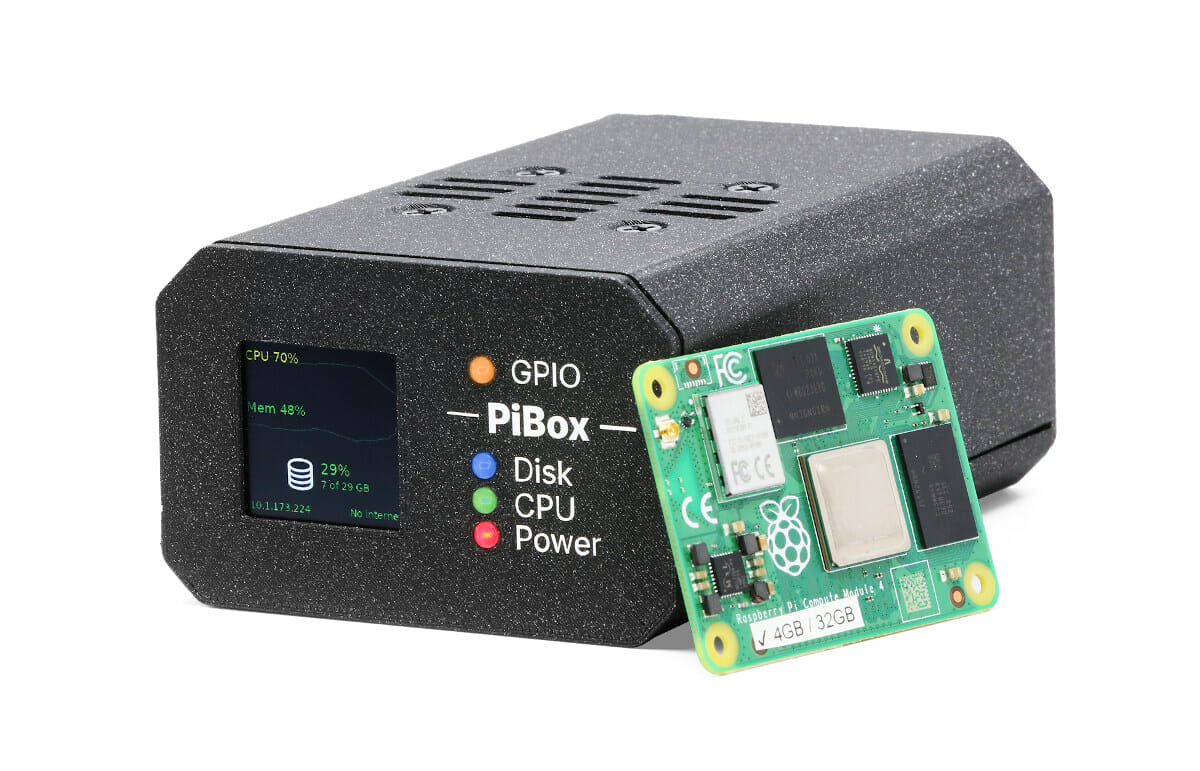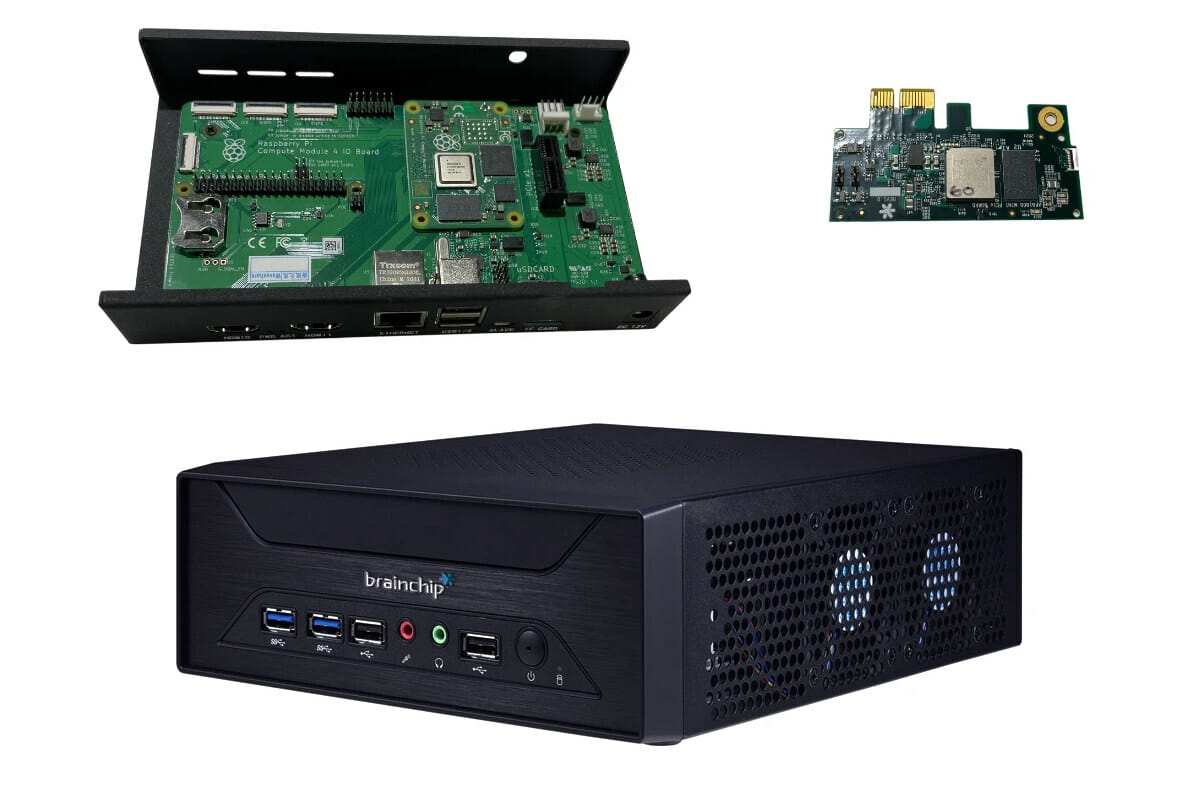The Raspberry Pi Foundation launched the Raspberry Pi Zero 2 W board yesterday with the main difference against Raspberry Pi Zero W board being the much faster Raspberry Pi RP3A0 SiP with a Broadcom quad-core Cortex-A53 processor clocked at 1.0 GHz and overclockable to 1.2 GHz. I received my sample shortly after publishing the announcement, and I had time to test it. Since the main difference is the processor, I’ll focus this review on benchmarks and whether additional cooling is required for the board. Raspberry Pi Zero 2 W kit unboxing If you purchase the board for $15, that’s all you’ll get, but Raspberry Pi Trading sent me a kit with Raspberry Pi Zero 2 W SBC, a USB OTG adapter, a mini HDMI to HDMI adapter, the CSI camera cable, and four rubber pad for the enclosure that comes with three covers: full, hole for 40-pin GPIO header, or […]
Raspberry Pi Zero 2 W and Zero W features comparison
The Raspberry Pi Zero 2 W quad-core board has just launched, and in this post, we’ll look at how the new board compares to the original Raspberry Pi Zero W SBC. From the photos above they are nearly identical, but looking at the detailed specifications, we’ll find some interesting differences. So the main reasons to get a Raspberry Pi Zero 2 W over a Raspberry Pi Zero W is the extra performance enabled by the quad-core Cortex-A53 processor and possibly better wireless performance. The downsides are at the new board costs $5 more, and power consumption might be higher, but this would have to be tested under various scenarios. Another reason you may end up getting the Zero 2 W board that is not shown in the specifications is the recent shortage of chips, so the new board may be more likely to be in stock at your local distributor. […]
$15 Raspberry Pi Zero 2 W launched with quad-core CPU, 512MB RAM
Raspberry Pi Zero 2 W is the first quad-core SBC from the Raspberry Pi Foundation with the Raspberry Pi Zero form factor. Based on the RP3A0 system-in-package (SiP) comprised of a Broadcom BCM2710A1 quad-core Cortex-A53 processor and 512MB LPDDR2, the new Pi Zero W 2 board offers the exact same interfaces as its predecessor. This includes a MicroSD card socket, a mini HDMI port, two micro USB ports, a MIPI CSI-2 camera connector, as well as an unpopulated 40-pin GPIO header. The wireless module appears to have changed but still offers WiFi 4 and Bluetooth 4.x BLE, and it’s using the same VideoCore IV GPU to handle 3D graphics and video encoding and decoding up to 1080p30. Raspberry Pi Zero 2 W specifications: SiP – Raspberry Pi RP3A0 system-in-package with: SoC – Broadcom BCM2710A1 quad-core Arm Cortex-A53 @ 1GHz (overclockable to 1.2 GHz) with VideoCore IV CPU supporting OpenGL ES […]
Picovoice Cobra Voice Activity Detection Engine shown to outperform Google WebRTC VAD
Picovoice Cobra Voice Activity Detection (VAD) engine has just been publicly released with support for Raspberry Pi, BeagleBone, NVIDIA Jetson Nano, Linux 64-bit, macOS 64-bit, Windows 64-bit, Android, iOS, and web browsers that support WebAssembly. Support for other Cortex-M and Cortex-A based SoCs can also be made available but only to enterprise customers. Picovoice already offered custom wake word detection with an easy and quick web-based training and offline voice recognition for Raspberry Pi, and even later ported their voice engine to Arduino. Cobra VAD is a new release, and, like other VADs, aims to detect the presence of a human voice within an audio stream. Picovoice Cobra can be found on Github, but note this is not an open-source solution, and instead, libpv_cobra.so dynamic library is provided for various targets, together with header files and demos in C, Python, Rust, and WebAssembly, as well as demo apps for iOS […]
CompuLab IOT-GATE-RPI4 gateway targets industrial control and monitoring
Compulab IOT-GATE-RPI4 is another industrial gateway based on the Raspberry Pi CM4 module that offers a different feature set and form factor compared to solutions like TECHBASE iModGATE-AI gateway or QWave Systems CatsPi Industrial carrier board. Designed with industrial control and monitoring in mind, the IOT-GATE-RPI4 gateway offers multiple RS485, RS232 and CAN FD ports, Ethernet, 4G LTE/4G, WiFi 802.11ac, and Bluetooth 5.0 connectivity, as well as a wide -40°C to 80°C operating temperature range, plus a wide input voltage from 8V to 36V as well as PoE support. Compulab IOT-GATE-RPI4 specifications: SoM – Raspberry Pi Compute Module 4 (CM4) with SoC – Broadcom BCM2711 quad-core ARM Cortex-A72 @ 1.5GHz plus VideoCore IV GPU with H.265 (4Kp60 decode), H.264 (1080p60 decode, 1080p30 encode) System Memory – 1GB to 8GB LPDDR4 Storage – 16GB to 128GB eMMC flash soldered on-board Secondary Storage – 64GB – 256GB NVMe flash via optional module […]
Raspberry Pi 4 achieves Vulkan 1.1 conformance, gets up to 60% GPU performance boost
Khronos has just granted Vulkan 1.1 conformance to Raspberry Pi 4 SBC, and following the implementation of various optimizations and new features such as geometry shaders, the v3dv Mesa driver delivers up to 60% higher GPU performance in Unreal Engine 4. Iglia started Vulkan driver work for Raspberry Pi 4 almost two years ago, with the triangle demo showcased in February 2020, followed by Vulkan 1.0 conformance in November 2020, and now the driver is certified conformant to Vulkan 1.1. While many GPUs are conformant, the Raspberry Pi 4 is only joined by a couple of complete platforms including several NVIDIA Jetson modules (Vulkan 1.2), and possibly some Intel and Google platforms shown as “Confidential” at this time. Alex Bate, Digital Content Manager for the Raspberry Pi Foundation, explains the driver changes for Vulkan 1.1 conformance have already been merged in the upstream v3dv Mesa driver, and should soon become […]
Raspberry Pi CM4 based PiBox 2 Mini serves as NAS, private Cloud storage (Crowdfunding)
The PiBox 2 Mini is a networked storage solution based on a Raspberry Pi CM4 module and equipped with two slots for 2.5-inch SATA drivers be it HDD’s or SSD’s. It also exposes USB ports and an HDMI port, so I could also be used as a computer. Designed by KubeSail “self hosting company”, the PiBox does not only serve as a standard NAS, but aims to provide a home-based private cloud hosting solution that can replace services such as Google Photos or Dropbox with easily installable templates that are hosted in the box. Pibox 2 Mini specifications: Support SoM – Raspberry Pi CM4 or CM4 Lite with up to 8GB RAM, 32GB eMMC flash Storage 2x SATA port for 2.5-inch drives (SSD or HDD) MicroSD card socket for people using CM4 Lite Video Output – HDMI 2.0 port up to 4Kp60 Display – Built-in 1.3-inch color LCD for information […]
BrainChip AKD1000 SNN AI SoC gets Raspberry Pi and x86 development kits
BrainChip has introduced two development kits for its Akida AKD1000 neuromorphic processor based on Raspberry Pi and an Intel (x86) mini PC in order to enable partners, large enterprises, and OEMs to begin testing and validation of the Akida chip. BrainChip Akida neural relies on spiking neural networks (SNN) which enable high-performance, real-time inference at ultra-low power, notably much lower power than traditional AI chips relying on CNN (convolutional neural network) technology. Akida Development Kit based on Raspberry Pi CM4 Specifications: SoM – Raspberry Pi CM4 or CM4 Lite with SoC: Broadcom BCM2711C0 quad-core ARM Cortex-A72 (ARMv8-A) 64-bit @ 1.5GHz plus Broadcom VideoCore VI GPU RAM – 1GB, 2GB, 4GB, or 8GB LPDDR4 SDRAM Storage – MicroSD card for CM4 Lite, or 2GB to 32GB eMMC for CM4 Networking – Optional 2.4 GHz and 5 GHz 802.11b/g/n/ac Wi-Fi, Bluetooth 5.0 LE, Gigabit Ethernet PHY Carrier board – Official Raspberry Pi […]


